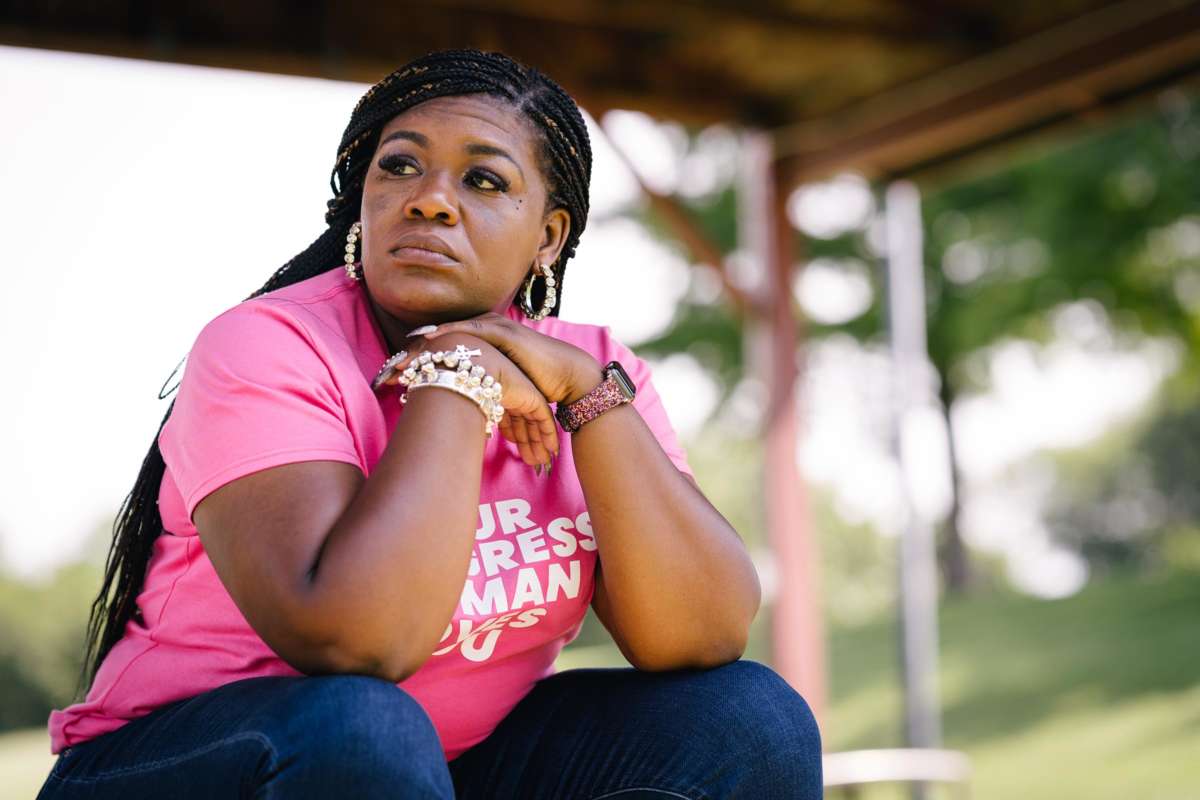Did you know that Truthout is a nonprofit and independently funded by readers like you? If you value what we do, please support our work with a donation.
Millions of people across the U.S. are once again at imminent risk of losing their homes after the conservative-dominated Supreme Court on Thursday struck down the Biden administration’s eviction moratorium, siding with a coalition of landlords and real estate companies that challenged the critical lifeline.
In an unsigned opinion, the 6-3 conservative majority ruled (pdf) that the Centers for Disease Control and Prevention does not have the authority to implement the eviction moratorium, the latest version of which was put in place earlier this month in response to pressure from progressive lawmakers and activists.
Writing for the three dissenting liberal justices, Stephen Breyer slammed the high court’s conservatives for rushing their massively consequential decision on the eviction ban without a “full briefing and argument.” The moratorium on evictions for non-payment of rent was originally intended to run through October 3.
“The public interest strongly favors respecting the CDC’s judgment at this moment, when over 90% of counties are experiencing high [coronavirus] transmission rates,” Breyer wrote, noting that the real estate coalition’s earlier argument against the eviction moratorium — that Covid-19 infections were trending downward — no longer holds.
The high court’s ruling came just a day after the U.S. Treasury Department released figures showing that 89% of rental assistance funds approved by Congress have not yet been distributed — a problem that some critics have attributed to the faulty design of the federal aid program.
Housing experts and advocates estimate that total rental debt in the U.S. currently amounts to around $21.3 billion, with households that are behind on rent owing $3,300 on average.
Congress has approved $46.5 billion in emergency rental assistance.
In a statement late Thursday, Rep. Cori Bush (D-Mo.) called the Supreme Court’s ruling “disastrous” and said that “Congress must act immediately to prevent mass evictions.”
Earlier this month, Bush and other progressive lawmakers camped out on the steps of the U.S. Capitol building to protest the expiration of a previous CDC eviction moratorium. Days after the demonstration began, the CDC authorized a new eviction ban that covered around 90% of the country.
“We are in an unprecedented and ongoing crisis that demands compassionate solutions that center the needs of the people and communities most in need of our help,” Bush said Thursday. “We didn’t sleep on those steps just to give up now… I urge my colleagues to reflect on the humanity of every single one of their unhoused, or soon-to-be unhoused, neighbors, and support a legislative solution to this eviction crisis.”
We were outside the Capitol for 5 days. Rain. Heat. Cold.
If they think this partisan ruling is going to stop us from fighting to keep people housed, they’re wrong.
Congress needs to act immediately. For every unhoused or soon to be unhoused person in our districts. https://t.co/Boi3rUaZ4Y
— Cori Bush (@CoriBush) August 27, 2021
While some cities and states still have moratoria in place, the Supreme Court’s decision means that millions of renters who are behind on payments are set to lose their last remaining protections, setting the stage for a wave of evictions as coronavirus infections surge across the country.
“This is cruel and wrong,” tweeted Rep. Pramila Jayapal (D-Wash.), chair of the Congressional Progressive Caucus. “If the public health crisis hasn’t ended, then the relief to survive it shouldn’t either. We must immediately do everything possible to keep people in their homes. This is a matter of life and death.”
According to a recent analysis by Eviction Lab, U.S. neighborhoods with the highest eviction filing rates typically have the lowest levels of vaccination against Covid-19. In some Southern states, landlord-friendly laws and procedures allow evictions to be fast-tracked, meaning the consequences of the high court’s decision could be felt in the very near future.
Diane Yentel, president and CEO of the National Low Income Housing Coalition, warned that “the tragic, consequential, and entirely avoidable outcome of this ruling will be millions of people losing their homes this fall and winter, just as the Delta variant ravages communities and lives.”
“Evictions risk lives and drive families deeper into poverty,” said Yentel. “During a pandemic, evictions further burden overstretched hospital systems, and make it much more difficult for the country to contain the virus. Evictions have been shown to increase spread of, and potentially deaths from, Covid-19. For families and individuals, evictions are profoundly traumatizing and destabilizing. For the country, evictions are expensive. The tragic consequences of this decision will reverberate for years.”
It is not yet clear what specific steps the White House and Congress — which is currently on recess — intend to take in response to the Supreme Court’s ruling. In a statement, White House Press Secretary Jen Psaki said the Biden administration was “disappointed” by the decision and urged “all entities that can prevent evictions — from cities and states to local courts, landlords, cabinet agencies — to urgently act.”
Rep. Mark Pocan (D-Wis.), chair emeritus of the Congressional Progressive Caucus, argued late Thursday that “Congress should immediately come back into session and extend the moratorium.”
“The Supreme Court blocking the eviction moratorium while the pandemic is killing 1,000 people a day is appalling,” said Pocan.
Media that fights fascism
Truthout is funded almost entirely by readers — that’s why we can speak truth to power and cut against the mainstream narrative. But independent journalists at Truthout face mounting political repression under Trump.
We rely on your support to survive McCarthyist censorship. Please make a tax-deductible one-time or monthly donation.
